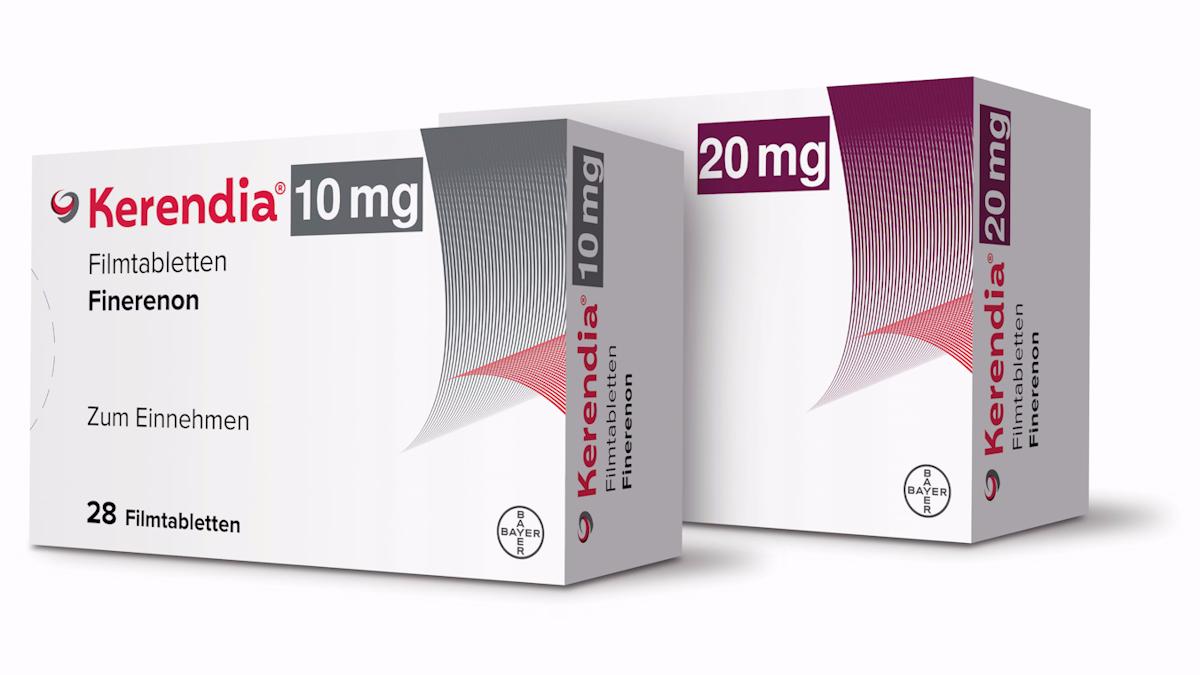Bayer gets sought-after heart failure use for Kerendia

Bayer's mineralocorticoid receptor antagonist (MRA) Kerendia has won FDA approval for a new heart failure indication thought to be pivotal for the product's sales prospects.
The US regulator has cleared use of Kerendia (finerenone) for the treatment of heart failure patients who have a left ventricular ejection fraction (LVEF) of 40% or more – in other words, mildly reduced or preserved LVEF – after a priority review.
It is the first drug in the MRA class to show a benefit in heart failure, and has been approved on the strength of the FINEARTS-HF study, which showed a statistically significant improvement in cardiovascular outcomes in these patients, including a reduced risk of cardiovascular death, hospitalisation for heart failure, and urgent heart failure visits.
Heart failure patients with LVEF of 40% or more account for around half of all heart failure patients, but have few available therapies, unlike heart failure with reduced ejection fraction (HFrEF).
According to FINEARTS-HF investigator Scott Solomon of Mass General Brigham, they represent "a large and growing group of patients with a poor prognosis" and Kerendia "can become a new pillar of comprehensive care."
Kerendia is already approved to treat chronic kidney disease associated with type 2 diabetes, but the heart failure indication lies at the heart of Bayer's plan to build the product into a €3 billion ($3.3 billion) blockbuster. In 2024, it brought in sales of €463 million – up nearly 74% on the prior year – and added another €161 million in the first three months of 2025.
The challenge for Bayer will be carving out a role for Kerendia in mildly reduced (HFmrEF) or preserved ejection fraction (HFpEF) heart failure alongside SGLT2 inhibitors – AstraZeneca's Farxiga (dapagliflozin) and Eli Lilly/Boehringer Ingelheim's Jardiance (empagliflozin) – which are the only approved therapies for these patients recommended in treatment guidelines.
Some patients in FINEARTS-HF were also taking SGLT2s, however, and Bayer is highlighting that the benefits seen with its drug were seen "regardless of background therapy, comorbidities, or hospitalisation status."
Novartis' big-selling Entresto (sacubitril/valsartan) is also an FDA-approved option for HFmrEF and HFpEF, but it is recognised that most of the drug's benefit comes from patients at the lower end of the LVEF spectrum.
The US is the first country to approve Kerendia for heart failure, although, marketing applications are under review in most other major markets including China, the EU, and Japan.
Meanwhile, Bayer is running an open-label study – CONFIRMATION-HF – testing Kerendia with Jardiance in patients hospitalised or recently discharged with heart failure, regardless of their LVEF status, to see if the drug's label can be extended even further.
It is also testing the drug in the REDEFINE-HF trial as monotherapy in patients with an LVEF of 40% or more, and the FINALITY-HF study as a monotherapy in those with an LVEF below 40%.
Kerendia is one of the most important growth products for Bayer as it faces the loss of patent protection and declining sales for anticoagulant Xarelto (rivaroxaban), along with prostate cancer therapy Nubeqa (darolutamide), BridgeBio-partnered Beyonttra (acoramidis) for transthyretin amyloidosis cardiomyopathy (ATTR-CM), and just-approved menopause therapy Lynkuet (elinzanetant).












